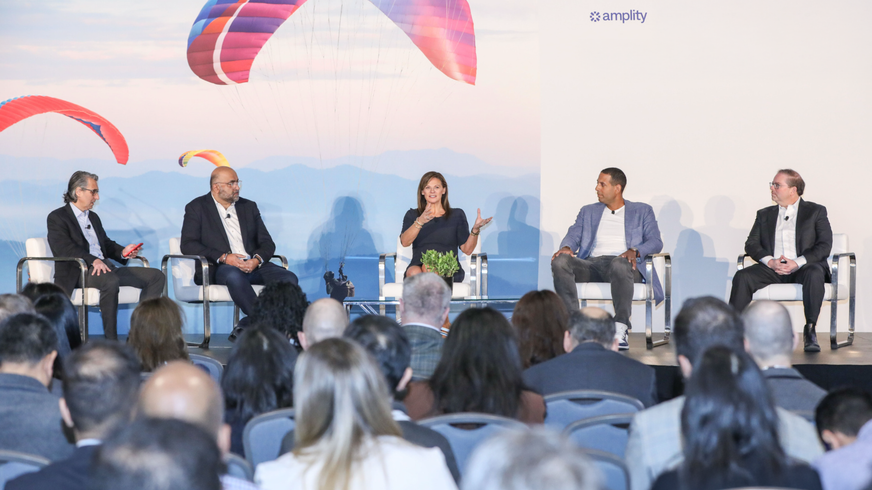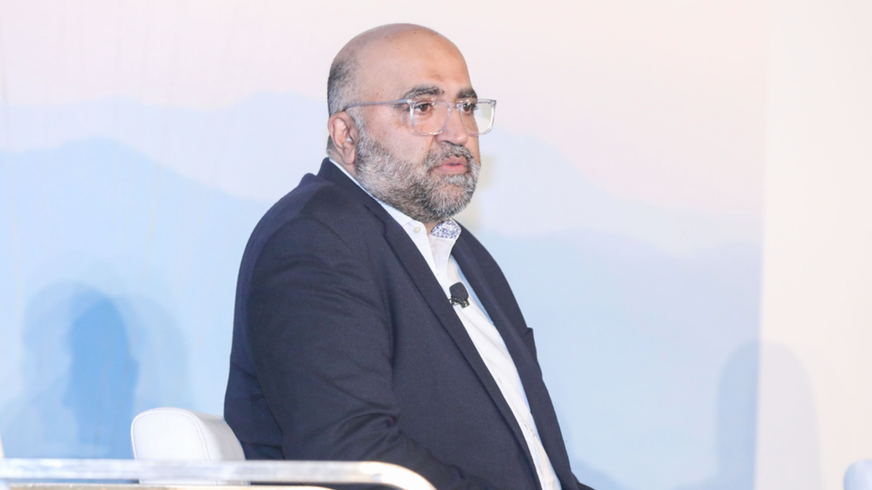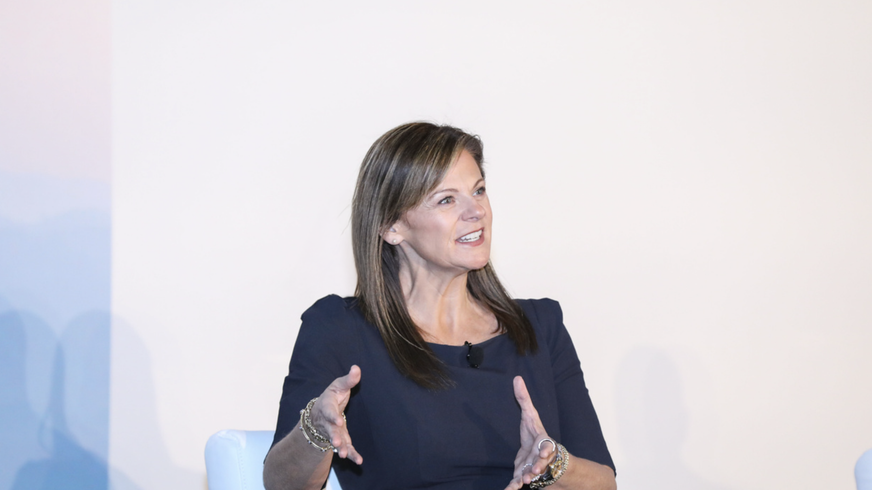Outsourcing global clinical
& medical engagement for accelerated drug approval
& acceptance
AnswerY™, an AI-driven, HIPAA-compliant platform of prescriber-patient conversations that drives next-best actions
Outsourcing global clinical
& medical engagement for accelerated drug approval
& acceptance
AnswerY™, an AI-driven, HIPAA-compliant platform of prescriber-patient conversations that drives next-best actions

No image found.

This article was written by Reuters Events for Pharma USA 2025, held on March 18-19, 2025, in Philadelphia, PA. Here is the original article.
| Sonny Shergill
VP, Commercial AstraZeneca |
Chris Baker
CEO Amplity
|
Davidek Herron
Global Head of Digital Roche
|
David Feldman
Head of Digital People Experience Takeda |
Steve Carter
VP, Digital, IT & Analytics Rayzebio |
“It’s less about the technology, it’s more about the people using the tools to enable them to do better versions of themselves.”
— Davidek Herron
“It’s really about lowering the barrier of entry to transform any single process across the entire value chain.”
— David Feldman
The pharmaceutical industry has witnessed numerous technological waves—from data science to predictive analytics, machine learning, and now large language models and agentic AI. As Steve Carter from Rayze Bio noted, “Success is achievable,” but requires clear focus on specific problems rather than chasing the latest technology trend.
Davidek Herron, Global Head of Digital for Roche, emphasized that effective AI implementation isn’t primarily about technology: “It’s less about the tech, it’s really about the human psychology and how we actually lean in to make better versions of ourselves.”
This sentiment was echoed by Sonny Shergill, VP of Digital Health at AstraZeneca, who highlighted the importance of understanding not just what is happening in the market but why: “What we’re doing now is adding a large language model agent to try and get to the why, to really understand not just the sales or the performance data, but look at the behavior data around the physician.”

The panel shared numerous examples of AI already delivering significant value:
Personalized Content & Communications
Roche has implemented generative AI tools that enable teams to create personalized content for healthcare professionals and patients much faster than traditional methods. “In the past, we would use external agencies to create content that took months to get out to us. By the time it’s there, it’s irrelevant for the actual patient or customer,” explained Herron. “We’re leveraging technologies now to enable our teams to run faster.”
Improving Treatment Decisions
AstraZeneca is combining multimodal data with deep genomic databases to understand drivers of treatment outcomes or resistance across lung, breast, and liver cancers. Shergill described how they’re “creating tools where you can actually identify that upfront with patients and then make sure that they’re on the right regimen that’s going to be most successful.”
Understanding Physician Decision-Making
Chris Baker, CEO of Amplity, described how their platform analyzes transcriptions of doctor-patient encounters: “It tells the why of doctor behavior, why they start a product, why they switch a product, why they choose to stop treatment. This is very robust for marketing messages instead of ad boards as well as for sales.”
Accelerating Manufacturing Processes
David Feldman of Takeda shared how they partnered with MIT to develop automated visual inspection of vaccine vials, “allowing you to go from three a minute to between 300 and 600 a minute”—a 100 to 200-fold acceleration.
Expanding Access To Underserved Markets
One of the most promising applications is enabling pharmaceutical companies to reach previously underserved populations. “We’re actually able to launch products in certain countries where we wouldn’t be able to launch them before,” said Herron. “These tools are unlocking that now.”
Implementing AI in a highly regulated industry presents unique challenges. The panelists shared strategies for balancing innovation with compliance: “It’s all about the data, getting your data in the right place, making sure it’s good quality, making sure it’s accessible to whatever model that you’re working with,” said Shergill. “We have pretty good governance, we have pretty good processes. So it’s leveraging those early, bringing our legal and compliance people in early.”
Takeda took an innovative approach to governance when opening their generative AI platform to the entire company. “Your point of risk isn’t someone having an idea. Your point of risk isn’t someone trying the idea to figure out if there’s value,” explained Feldman. “Your point of risk is when you start to share that out with lots of people.”
Baker emphasized the importance of protecting patient data: “All of us in the data space need to not be thinking one iteration but two or three iterations to say how can I protect this data? How can I ensure with AI that parts aren’t being put together that shouldn’t be put together?”
However, Herron challenged the industry to consider whether governance is sometimes used as an excuse for inaction: “Are we moving fast enough as an industry to really adopt and move this along, or are we using things like governance as blockers in our own minds to really slow us down?”

Driving widespread adoption of AI tools requires thoughtful approaches to organizational culture. Feldman shared how Takeda identified an annual spike in AI usage during performance review season as employees sought help drafting their accomplishments. Rather than discouraging this, they embraced it: “This year, we actually built an agent with HR. So if someone goes into Performance Pal, they can put in what they did, and it will automatically do all of those things for them,” said Feldman. “It’s something that every single person does. It’s something that everyone can relate to, and it starts to drive behavior.”
Shergill acknowledged the challenge of changing established workflows:
“You’re asking people to change their daily workflow… We try and get physicians to change their workflow. We know how hard that is. It’s just as hard for ourselves as well.”
Looking ahead, the panelists shared their visions for how AI will transform the industry: “AI isn’t going to be a special thing. It’s going to be part and parcel of how we make decisions,” predicted Shergill. “If you’re not using AI in your area of subject matter expertise, you’re not really doing your job.”
While the technology will transform what’s possible, Baker emphasized that certain fundamentals will remain constant: “Grit, hard work… people skills, engagement… understanding what people care about, caring about people, what motivates them, engaging them, helping them with development.”

Herron believes AI will fundamentally change how the industry operates: “The future of work is going to vastly change. And if it doesn’t, we’re losing on behalf of our patients.”
Perhaps most significantly, AI is democratizing innovation across organizations. “Building solutions with AI took engineers, it took people who are maybe computer science majors,” said Feldman. “But what we’re really talking about is natural language words that we use to describe the problem we have, that these models can reason over. It’s really about lowering the barrier of entry to transform any single process across the entire value chain.”
Dig deeper: Learn how our AI-powered exclusive intel uncovers the “why” behind treatment rationale for accelerated adoption and elevated HCP engagement.